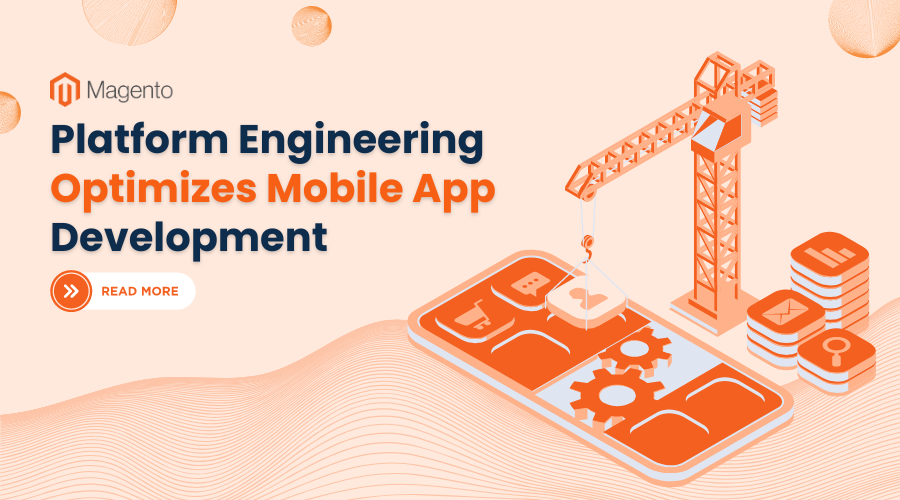
Table of Contents
I. Introduction to Platform Engineering in Mobile App Development
Platform engineering has emerged as a crucial aspect of mobile app development and transformed the paradigms of app construction, deployment, and evolution. Developers are then presented with a single operating platform containing all the resources, structures, and built-in automation a developer may require in the development process for optimal efficiency. This facilitates teams to dedicate time to add value by achieving excellent automation and integration across the phases of the development life cycle.
In today’s competitive market, adopting platform engineering practices helps ensure streamlined app development, faster releases, and enhanced scalability—all essential elements for the modern mobile app ecosystem.
II. 5 Key Benefits of Platform Engineering in Mobile App Development
The success of a mobile app depends not only on its functionality but also on the efficiency of its development process. Platform engineering provides a strong foundation that enables successful mobile app development in the following ways:
- Scalability:
Platform engineering brings in a strong foundation over which the development teams are able to grow applications effectively. This concept implies that when the users demand is great, the platform can support this extra load without the need to redesign. It is convenient for developers to scale up the resources with optimal performance as per the company’s rapid expansion. The feature of scalability helps maintain the desired application’s stability and high-speed performance even with an influx of users to access the app. Such scalability is important in ensuring users of the app do not get uncomfortable using the app as it grows in complexity. In general, platform engineering reduces the complexity of additional feature extensions in the provided application.

- Increased Developer Productivity:
In platform engineering, automation is a primary building block since developers should not waste their time on mundane and tedious work. It also enables the developers to free enough time and work more effectively in some other parts of applications like the development of new features, or even enhancement of user interfaces. Since repetitive tasks consume time, developers are able to spend a lot of time coding and dealing with problems. What is left is a more efficient environment of development where concepts and solutions play a higher role. In this regard, platform engineering increases the team’s overall productivity by optimizing different task sequences. This results in the provision of quicker developmental cycles and quality applications.
- Faster Time to Market:
Well-orchestrated workflows and templates introduced go a long way in shortening the development period for app solutions. This means that platform engineering can shave off considerable time across different aspects of development, from coding to deployment to have an application out in the market. By the application of automated tools, time would be saved and the same processes would be done accurately. This speed in development helps businesses to be able to meet the market needs and adapt to them at a faster pace. A market window is therefore important since it enables an organization to capitalize on opportunities by having its products in the market before competitors. It is therefore apparent that platform engineering is well-placed in offering timely and relevant mobile applications.

- Consistency and Standardization:
Single-sourced platform tools are for ensuring that there is conformity when it comes to the development process when done by the members of the team. This is important as it provides coherence in the processes that are implemented by all the developers, thus minimizing on possibilities of mistakes and inconsistencies. Integration means bringing together diverse or whether it means making processes standard and predictable and making development processes less risky and easier to manage. Platform engineering helps in solving problems since the resultant structure is more uniform hence easier to integrate the codes. It also improves the maintainability of the app, where modification over time or release of new versions will be systematic in nature. In other words, platform engineering is important in laying the foundation for an integrated and trustworthy development environment.
- Enhanced Collaboration:
This is the platform engineering hence comes up with a uniform habitat that creates a better knocking point for the cross-functional teams. Through using the commonality of tools and assets, the members of a team can interact and also monitor concrete results. This makes work more organized as all the people involved are in harmony, hence minimizing confusion and misconceptions. The structure of the platform allows for linking the contributions of multiple authors which increases the project coherence. When there is cooperation, it makes the resolution of issues and the arriving at particular decisions to be very efficient. Therefore, platform engineering improves the team and work relationships and increases the chances of success in delivering projects.
III. Role of Automation in Platform Engineering for Mobile App Development
Automation is at the heart of platform engineering. By automating processes like testing, code integration, and deployment, platform engineering significantly accelerates mobile app development. Automation reduces human error, ensures faster feedback loops, and enhances the reliability of app releases.
For mobile apps, this means features can be tested and deployed faster, allowing developers to quickly iterate based on user feedback and changing requirements.
IV. Role of CI/CD in Platform Engineering for Mobile App Development
Continuous Integration and Continuous Delivery (CI/CD) are the essentials of platform engineering, and a much-critical component when it comes to the mobile applications’ development. CI/CD Pipelines is a process that involves automatically integrating code changes, testing it through a pipeline and deploying applications with the highest reliability and frequency while avoiding downtimes.
Unless a mobile app developer uses the best CI/CD tools, it becomes very difficult to release an app, minimize issues like bugs and bring out the best in the code created. As is the case with Jenkins, CircleCI or GitLab CI, there are tools that assist teams in adopting CI/CD strategies that enhance speed and efficiency in application development.

V. Security and Compliance Through Platform Engineering
This also goes hand in hand with ensuring that the security measures put in place are well maintained in the entire mobile app development platform. With security features incorporated into the structure, the engineers are able to make automated security assessments can perform vulnerability tests and report on compliance to the standard. This is very important for keeping data accurate and highly secure, especially for applications that deal with the user’s personal information.
Besides, platform engineering ensures that security is integrated into the development cycle and hence, few vulnerabilities will be missed in the development cycle and end up being seen only at the deployment stage.
VI. Cost Efficiency and Resource Management
Managing app development costs effectively is one of the key goals of platform engineering. Thus, through centralising of resources/ assets, robotic processes as well as operational excellence, platform engineering cuts back development time and exertion. This leads to a reduction of operational expenses and optimized utilization of resources.
With platform engineering, companies can minimize waste, avoid redundant efforts, and ensure that their development processes are streamlined, ultimately reducing the total cost of ownership for mobile applications.
Conclusion: The Future of Platform Engineering in Mobile App Development
As mobile apps continue to evolve, platform engineering will play an even more prominent role in shaping the future of development. By offering a holistic approach to automation, resource management, security, and scalability, platform engineering empowers mobile app developers to create more sophisticated and user-friendly apps. With the continued growth of mobile technologies, platform engineering will remain a critical factor in driving innovation and enabling faster, more efficient development. Investing in these practices now will allow developers to stay ahead of the curve in the rapidly changing world of mobile app development.












![[SALE OFF] Discount 30% All Premium Extensions On Christmas And New Year 2025 christmas-and-new-year-2025](https://landofcoder.b-cdn.net/wp-content/uploads/2024/12/christmas-and-new-year-2025-1-218x150.png)






